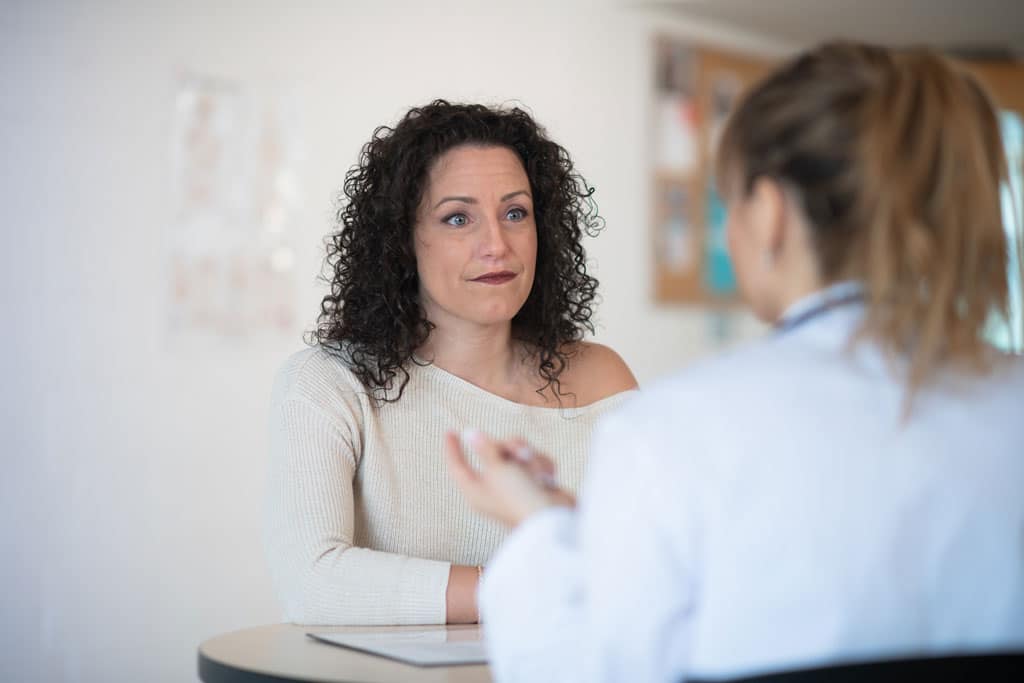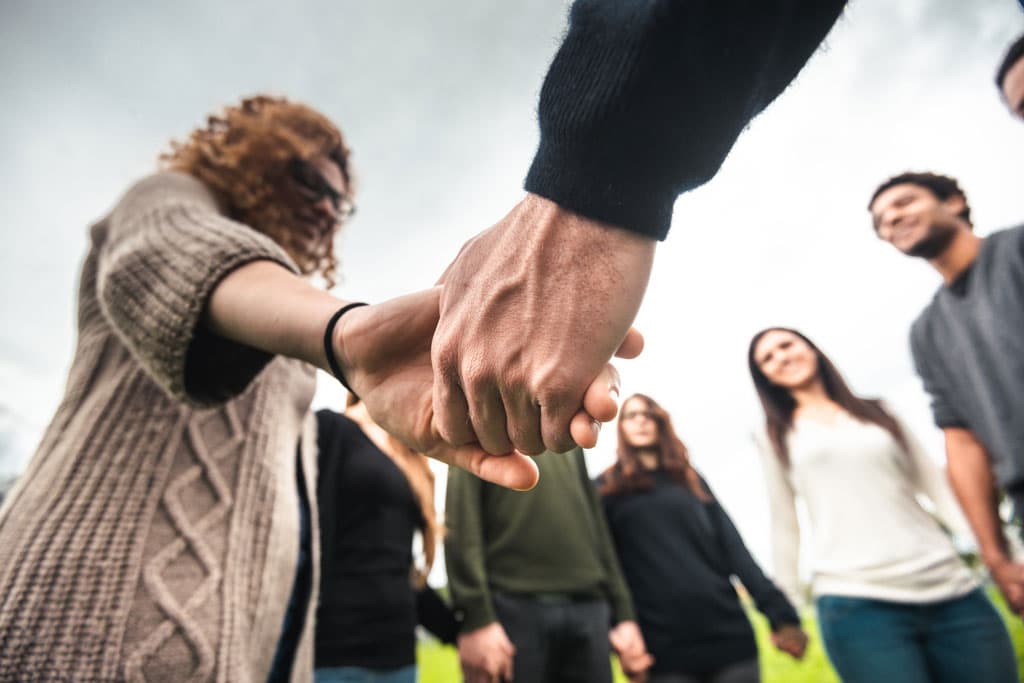Embrace Recovery: LGBTQ Treatment Centers
Introduction
Everyone deserves a chance to heal, grow, and find their path to recovery. For people in the LGBTQ community, societal pressures and mental health challenges can make things hard for their recovery. However, with the right help and understanding, from LGBTQ treatment centers, they can get help.
At Mile High Recovery Center in Denver, Colorado, we offer specialized care tailored to the unique needs of the LGBTQ community.

A Closer Look at the LGBTQ Community
Recognizing and respecting the identities of the LGBTQ community is the first step toward creating an inclusive environment.
The LGBTQ community is vast and diverse. Millions of people around the world identify with one or more labels within the acronym. In the United States alone, 7.1% of the population identifies as lesbian, gay, bisexual, or transgender.1
This number shows how important LGBTQ treatment centers are. They can offer specialized services tailored to unique needs and challenges.
Challenges Faced by the LGBTQ Community
People in the LGBTQ community often face challenges such as:
- Societal pressures
- Social stigma
- Unfair treatment
- Harassment, including hate crimes
- Alienation and isolation
Because of these problems, they might have mental health disorders like depression, anxiety, and suicidal thoughts. They may even use drugs or alcohol to cope. LGBTQ treatment centers can help offer specialized and supportive care.
LGBTQ Substance Misuse and Mental Health Statistics
Research shows that LGBTQ people have a higher chance of drug addiction and mental health problems than those who are not in the community.
For example, a June 2023 data report from the Substance Abuse and Mental Health Services Administration (SAMHSA) reports that gay and bisexual males and females are 2-3x more likely to have used illicit drugs in the past year.
On top of that, one-third of bisexual males, females, and gay males had a substance use disorder in the past year. About one in four lesbian females reported the same.2
Further Statistics to Note
These serious facts showcase why e LGBTQ treatment centers are imperative for holistic and comprehensive treatment.
The Role of LGBTQ Treatment Centers in Recovery
LGBTQ treatment centers offer a safe, understanding, and inclusive environment. They recognize the unique challenges faced by the community. This way, they can provide specialized care tailored to their needs.
These centers also often focus on holistic healing. They address addiction and its underlying causes for a comprehensive recovery.
Key Features of LGBTQ Treatment Centers
When searching for LGBTQ treatment centers, it’s essential to look for a place that fosters a healthy, welcoming environment for members of the LGBTQ community. Consider these features to look for in order to find the right treatment center for you or your loved one.
1. A Non-Judgmental and Inclusive Environment
When someone is healing, they need to feel safe and accepted. Effective LGBTQ treatment centers will make everyone feel welcome, no matter who they are. This means no one is judged, and everyone is treated with respect.
2. Staff Trained in LGBTQ-Specific Issues
It’s important for the staff to understand the challenges that LGBTQ people face. With this knowledge, they can give the best care and support to those in the center.
3. Personalized Treatment Plans
Everyone’s journey with recovery is different. Top-notch LGBTQ treatment centers will have treatment plans that fit each person’s needs. This way, everyone gets the right kind of help.
4. Support Groups Tailored to LGBTQ Needs
Talking with others who understand the needs and struggles of LGBTQ individuals can be very helpful. Support groups at the center should focus on the unique experiences of LGBTQ individuals. Sharing stories and feelings in these groups can be a big part of healing.
5. Evidence of a Commitment to Ongoing LGBTQ Education
The world changes, and so does our understanding of LGBTQ issues. Effective LBBTQ treatment centers will always be learning and updating their knowledge. This shows they truly care about giving the best support.
6. Safe and Supportive Housing Options
Having a safe place to stay is key. Some LGBTQ treatment centers offer housing where people can live while they get treatment. These places should be safe, comfortable, and supportive of everyone’s journey.
7. Holistic Therapies Addressing Body, Mind, and Spirit
Healing isn’t just about the body. It’s also about the mind and spirit. LGBTQ treatment centers should offer therapies that help every part of a person. This can include things like meditation, art therapy, or even yoga.
8. Community-Based Therapy and Support
Being part of a community can make a big difference. Some LGBTQ treatment centers offer group activities or outings. This helps people feel connected and reminds them they’re not alone in their journey.
9. An Alumni Program for Continued Support
Recovery doesn’t end when someone leaves the center. Many LGBTQ treatment centers have programs for people who have finished their treatment. This way, they can keep getting support and stay connected to the community.
10. Recreational Activities Promoting Overall Well-Being
Having fun and staying active is important. LGBTQ treatment centers should have activities like sports, arts, or even trips. These activities help people relax, have fun, and build a healthy lifestyle.
How Mile High Recovery Center Can Help
Mile High Recovery Center knows the unique challenges that many LGBTQ people face. Our comprehensive programs tackle these issues head-on. LGBTQ treatment centers like ours make sure every person feels understood and supported, helping them on their journey to recovery.
Therapies Offered at Mile High Recovery Center
The journey to recovery is deeply personal. For members of the LGBTQ community, it often comes with unique challenges.
Mile High Recovery Center recognizes these challenges and the need for LGBTQ treatment centers. That’s why we offer specialized services tailored to the LGBTQ community. Some therapies we offer include:
Acceptance and Commitment Therapy (ACT)
Acceptance and commitment therapy (ACT) teaches people to accept their feelings and thoughts. It helps them commit to actions that make their life better.
For those in the LGBTQ community, this therapy can be a game-changer. It helps them deal with feelings that come from not being accepted.
In ACT, our therapists use different exercises to help people see their thoughts in a new way. This helps them make choices that line up with their values, even when life is tough.
Cognitive-Behavioral Therapy (CBT)
Cognitive-behavioral therapy is about understanding and changing negative thoughts. For LGBTQ individuals, these thoughts might come from how society sees them or due to varying other factors.
CBT helps them recognize these thoughts and decide if they’re true or helpful. If they’re not beneficial, they learn ways to change them. In CBT, people work with therapists to spot these thoughts.
Then, they challenge them and replace them with positive ones. This can help reduce stress and boost self-esteem.
Dialectical Behavior Therapy (DBT)
Dialectical behavior therapy (DBT) combines acceptance and change. It’s great for LGBTQ people who might have strong emotions due to discrimination, personal struggles, or mental health symptoms. DBT teaches skills so that individuals can handle these emotions and build a better life.
In DBT, people learn four main skills:
- Mindfulness
- Distress tolerance
- Emotion regulation
- Interpersonal effectiveness
These skills help them stay calm, make wise choices, and build better relationships.
Eye Movement Desensitization and Reprocessing (EMDR)
EMDR is a special therapy for trauma. Many LGBTQ people have faced trauma, from unfair treatment to physical harm. EMDR helps them process these memories in a healing way.
In EMDR, our therapists guide people in certain eye or bilateral movements while they work through the trauma. This helps change the way the memory affects them, letting them heal and work through risks.
Motivational Enhancement Therapy (MET)
Motivational enhancement therapy (MET) boosts the drive to change harmful habits. For LGBTQ people dealing with drug or alcohol problems, MET can help. It brings out their reasons for change, making the journey personal.
In MET, our therapists and clients talk about the pros and cons of change. This helps clients see the benefits of change and boosts their motivation to get and stay sober.
Relapse Prevention
Staying sober is a big part of recovery. Relapse prevention therapy gives tools and strategies to help LGBTQ individuals stay on track. They learn to spot things that might make them use drugs or alcohol again.
Then, they make a plan to handle these risks. This might include:
- Avoiding certain places
- Finding new hobbies
- Building a support system
Dual Diagnosis
Some LGBTQ people deal with both substance and mental health disorders at the same time. This is known as a co-occurring disorder, or dual diagnosis.
Dual diagnosis treats these disorders to ensure patients get holistic care. In dual diagnosis, our therapists look at how addiction and mental health affect each other. Then, we make a treatment plan that handles both, giving the person a better chance at a full recovery.
Group Therapy
Talking with others can help healing. Group therapy at LGBTQ treatment centers lets individuals share their stories and feelings. They can then connect with others who understand.
In group therapy, people meet regularly to talk about their challenges and successes under the supervision of one of our therapists. They give each other advice and support, helping everyone in the group move forward in their recovery.
Family Therapy
Understanding starts at home. Family therapy helps families support their LGBTQ members. It teaches them about the challenges their loved one faces.
In family therapy, families meet with our therapists to talk about their feelings and concerns. They learn ways to communicate better and support each other, making the family bond stronger.
Equine Therapy
Working with horses can help with healing. Equine therapy lets LGBTQ people explore their feelings in a calm setting. They learn to care for horses, which can help them care for themselves.
In equine therapy, people spend time with horses, doing activities like grooming or riding. This helps them relax, build confidence, and learn new skills.
Addiction and Mental Health Psychiatry
Professional care is key in recovery. This service makes sure any mental health problems are treated alongside addiction. Psychiatrists can provide therapy and medication if needed during the healing process. They work with patients to find the best treatment plan, ensuring they get complete care.

Tailored LGBTQ Treatment at Mile High Recovery Center
The journey to recovery is deeply personal. For members of the LGBTQ community, this journey is not just about overcoming addiction or mental health challenges. It’s also about navigating a world that hasn’t always been understanding or accepting.
These added layers of complexity require a compassionate, informed approach to healing. LGBTQ treatment centers provide that approach, and Mile High Recovery Center stands as a beacon of hope.
Mile High Recovery Center’s Commitment to the LGBTQ Community
We don’t just recognize the unique challenges faced by the LGBTQ community; we actively address them. Our commitment goes beyond mere acknowledgment.
We have taken deliberate steps to ensure our services are not just inclusive but are also tailored to meet the needs of the LGBTQ community.
By offering a diverse range of treatments and services, we aim to create a sanctuary where every individual can find the tools and support they need to heal. Our goal is to ensure that every person who walks through our doors feels supported in every step of their recovery journey.
Start Your Journey to Recovery with Mile High Recovery Center
At Mile High Recovery Center, we believe in the power of specialized care of LGBTQ treatment centers. Your journey to healing and acceptance deserves a supportive hand. At Mile High Recovery Center, we understand, and we’re here for you.
Begin your transformative journey with us. Reach out today to see how we can help you or your loved one get the care that you deserve.
Resources
- https://news.gallup.com/poll/389792/lgbt-identification-ticks-up.aspx
- https://www.samhsa.gov/newsroom/press-announcements/20230613/samhsa-releases-new-data-lesbian-gay-bisexual-behavioral-health
- https://www.thetrevorproject.org/survey-2022/
- https://www.sageusa.org/what-we-do/sage-national-lgbt-elder-hotline/



